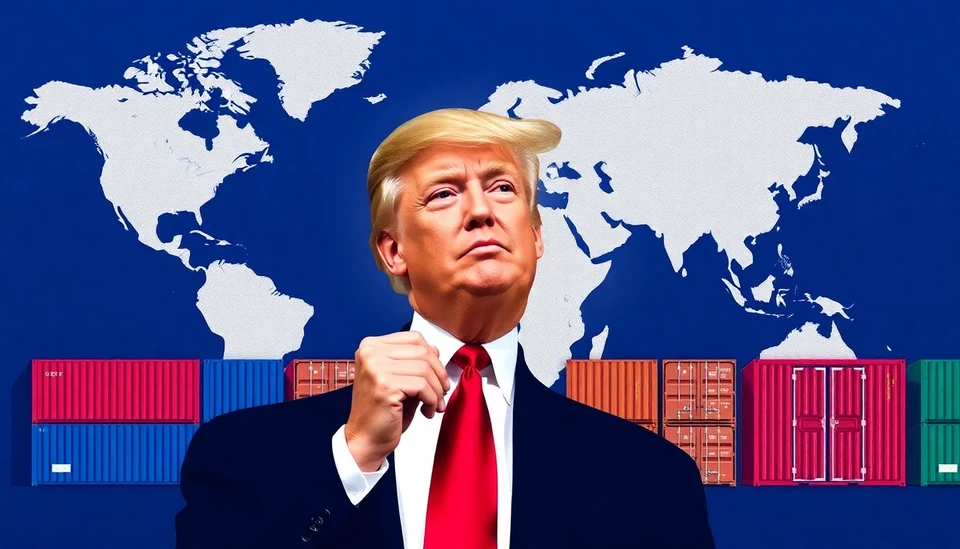
In an aggressive move that signals a continuation of his contentious trade policies, former President Donald Trump is broadening the scope of his trade fight to include global taxes and regulatory measures. This development comes as a response to rising concerns among American businesses regarding competitiveness in the international market, particularly as other nations implement fiscal policies that could undermine U.S. interests.
The shifted focus is part of Trump's evolving strategy that not only targets tariffs but also aims to challenge foreign taxation practices that he claims could give other countries an unfair advantage. The former president has expressed his belief that these global taxes are detrimental to U.S. companies, leading to potential job losses and reduced economic growth. As companies in Europe and Asia adopt various forms of taxation that can impact cross-border business, Trump’s administration sees an opening to push back against what they perceive as weaponized taxation against American interests.
Trump has articulated this new direction with fervor, rallying his supporters and emphasizing the need to prioritize American businesses in this increasingly interconnected global economy. He argues that foreign governments are using tax policies as a tool to lure American corporations abroad, which, according to him, stifles domestic growth and innovation. In his speeches and public remarks, he has vowed to retaliate against countries that impose burdensome regulations and taxes on U.S. firms.
The implications of this policy shift are profound. Experts suggest that such actions could not only lead to heightened tensions with trading partners but also complicate existing trade agreements. The move could pave the way for renewed negotiations as the Biden administration assesses how to approach trade relations moving forward. Moreover, there is a risk that this approach could unfold into a broader global trade conflict, reminiscent of the trade wars during Trump’s presidency.
Industry leaders are closely watching these developments, as they could result in significant changes to how American businesses operate internationally. Many are advocating for a balanced approach that includes dialogues with foreign governments to foster favorable trade relations rather than purely punitive measures that could escalate retaliatory actions.
As Trump amplifies his stance on global taxation and regulation, this development highlights a pivotal moment in U.S. trade policy. It serves as a critical reminder of the complexities businesses face on a global scale, where policy decisions in Washington can have far-reaching effects on economic dynamics worldwide.
With the presidential election on the horizon, Trump's focus on trade and tax issues is likely to be a central theme as he seeks to galvanize support among voters concerned with economic security and job preservation in America. His ability to frame global tax issues as a direct threat to American industries could resonate with a populace that remains anxious about the future of work and manufacturing in the United States.
As this situation unfolds, stakeholders from various sectors will be keenly observing not only Trump's rhetoric but also the responses from current trade partners and competitors around the globe. The potential for a renewed trade conflict looms large, affecting economic forecasts and shaping the landscape of international commerce for years to come.
In summary, Trump’s expanded trade fight marks a critical moment where U.S. policy will grapple with the challenges of globalization, taxation, and regulation as businesses strive for an equitable playing field in an increasingly complex global economy.
#Trump #TradeWar #GlobalTaxes #Regulations #EconomicPolicy #USChinaTrade #AmericanBusiness #InternationalTrade
Author: Daniel Foster




